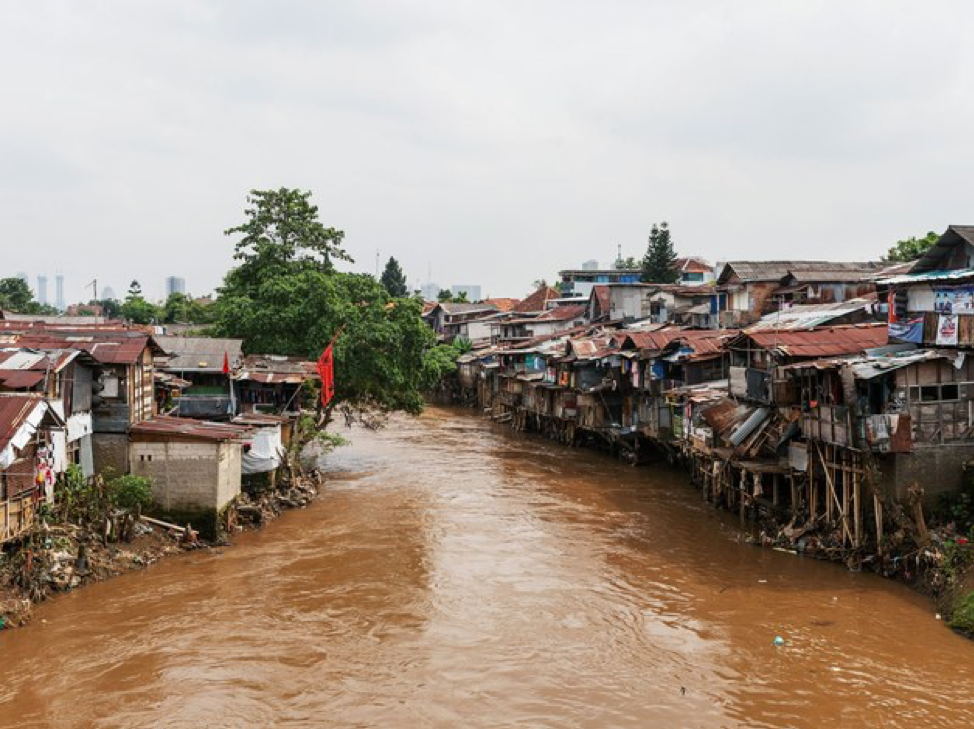
It’s a slow-motion disaster made all the more dire by the fact that very few people in Jakarta have insurance, one of the handful of things that can help a population ride out rising seas and fiercer storms. Just how small is Indonesia’s insurance industry? Well, it has 300 fully accredited actuaries—the professionals who calculate risk—a number it's scrambling to boost. In Canada that number is 3,400, and it’s got a seventh the population that Indonesia has. And, of course, its capital city isn’t sinking and flooding the way Jakarta is.
To make matters worse, Jakarta’s poorest and most vulnerable residents—those least able to afford insurance—often live in the most flood-prone places.
Indonesians, and indeed all of humanity, haven’t seen a crisis quite this daunting. The sea is swallowing up the nation's 17,000 islands, so families can’t just move down the street to escape danger. They’ll need money to relocate and find new livelihoods—money that insurance can provide.
A solution here might be microinsurance, an affordable way for low-income people to protect their crops and homes against disaster, right through a mobile phone. “But again, if people don’t understand why they need the product, and if they don’t have disposable income, they won’t buy it,” says Iene Muliati, a fellow of the Society of Actuaries of Indonesia.
Complicating matters further is the fact that insurers—not only in the developing world but all across the planet—have already started avoiding certain areas or jacking up their premiums.
“Increasingly, what you're finding is that insurance is becoming unavailable to people,” says Blair Feltmate, Water Institute member and head of the Intact Centre for Climate Adaptation at Canada’s University of Waterloo.
“The amount they would have to pay in premiums becomes logarithmic—in other words, it's off the charts.”
